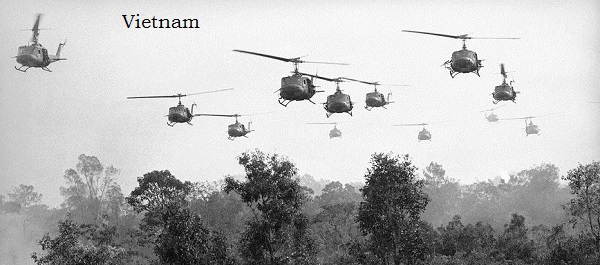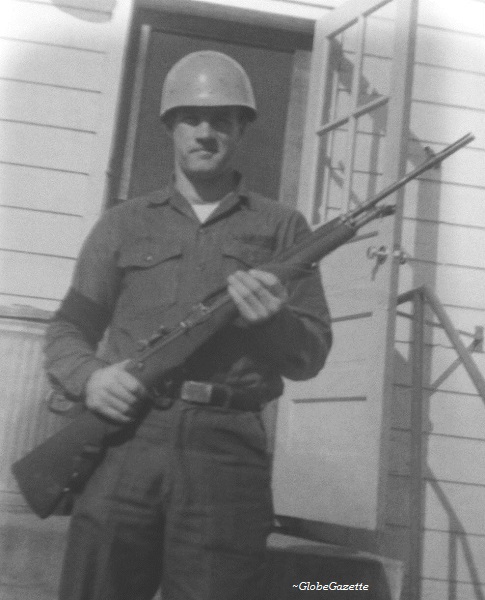


Cerro Gordo County Iowa
Part of the IAGenWeb Project
|
The Globe-Gazette
 The Globe Gazette will publish 50 stories — starting on Veterans Day — about North Iowa’s Vietnam Veterans. The stories will appear on Sundays and Wednesdays. We’ll culminate this "They Served With Honor" project with a special section (publishing on the day before Memorial Day) that will include all of the profiles. It will be great keepsake and resource for family members, educators and part-time historians.
by Meredith Colias, March 13, 2016

In 1969, with more than half a million soldiers already in the country, he figured the draft board wouldn’t notice he was one credit short of the 12 required to keep his full-time college exemption. “Well, they did,” he said. At 20, faced with an Army draft letter, he decided to join the service. “Everyone that enlisted at that time, you knew you were going to Vietnam,” he said. In early 1969 he took the bus down to Fort Polk, Louisiana, for basic and advanced training. By late April he was an armored vehicle driver in Vietnam. He spent 15 months there, first as a driver with the First Infantry Division, then as a helicopter gunner. When he first became a helicopter gunner he was told the average life expectancy was 19 days, he said. Near the end of his 12-month tour, the Army made an offer: If he stayed in Vietnam three more months he could leave the service outright. He accepted. Once back home in 1970, he briefly returned to college, got married in 1971, had kids and farmed for about a decade until the 1980s farm crisis pushed him back to school. He became a history teacher then school superintendent, now at CAL in Latimer. When a special education teacher asked if her fifth-grade students could write to him as if he were still a soldier in Vietnam, he dutifully responded to their handwritten letters telling stories from his time on the battlefield. Lane said he couldn’t know for sure if he had killed anyone, but spoke of the anguish of war and how he was dismayed when he found pictures of families in the wallets of dead Vietnamese soldiers. “Kids need to understand that war is not fascinating,” he said. Looking back after nearly half a century, “you wonder how necessary it was,” he said. “By 1975, when the North Vietnamese took over, it was all for a lost cause.” Coming home, he said, he was fine with folks not knowing he was a Vietnam veteran, simply choosing not to wear it as a central part of his identity. But the solitary nature of how soldiers went and returned made it difficult to cope at times with his combat experiences. “I went to a couple of parties right away when I came home and I guess my friends were just happy to see me,” he said. “I think they knew we didn’t want to talk about it, so nobody asked.” While he was in Vietnam, writing gave him a different way to bond with his now deceased father, Joe, a reserved man who drove a truck in the Army Air Corps during World War II in France. “He wasn’t emotional. I don’t remember in my lifetime he ever said, ‘I love you,’” he said, “but, he did a few times in those letters. “That time, I did get a hug out of him,” Lane said when he returned home. “He said, ‘I’m glad to have you home all in one piece.’”
Photographs courtesy of Globe-Gazette
|